Only China and Indonesia have a complete collection of world badminton team championship cups but as favourites at this year’s Sudirman Cup, can Japan finally join this most exclusive of clubs?
By Don Hearn. Photos: Badmintonphoto
It was five years ago now that Japan finally added a name to the list of nations that had won the Thomas Cup. Last year, Japan took back the Uber Cup for the first time since before China entered the fray in the early 80s.
In 2014, the Chinese were favoured to repeat as Cup winners, indeed as they were to win the Thomas Cup in 2016 and the last edition of the Sudirman, when they suffered huge upsets to Korea in both cases. Now in 2019, for the first time in recent memory, China is not only not the defending champion but is also not the favourite. As at last year’s Uber Cup, Japan is the top seed but this year, China is not in the position of trying to hold onto the Sudirman title but rather to win it back themselves and playing at home, they have no intention of letting Japan snatch it up without a struggle.
China will be banking on a much stronger showing in mixed doubles, after Zheng Siwei lost both of his matches back in 2017 and Huang Yaqiong was unable to contribute the decisive point in the final against Korea. Now paired together, these two normally look unbeatable and neither is as green in team events as they were back in 2017, even though they haven’t had a mixed team event outing since then.
Japan’s strong points, of course, are its two world #1s. Particularly in women’s doubles, the top seeds have three world’s top 5 pairs to choose from and any one would be expected to deliver the point. Still, all three pairs have losing records to All England champions Chen Qingchen / Jia Yifan and also at the recent New Zealand Open, they all fell to Korea’s Kong Hee Yong and Kim So Yeong.
Kento Momota is Japan’s other strongest card. He’s already won 4 tournaments this year and has impressive records against all of his prospective opponents. His only losing head-to-head record is against Chen Long (pictured) but most of those wins for Chen are from several years ago and the Chinese coaches may well be more hopeful that Shi Yuqi will find a way past the Japanese ace as he did at the World Tour Finals in Guangzhou last December.
Women’s singles should belong to whichever player Japan fields, at least against China. Both Akane Yamaguchi and Nozomi Okuhara have healthy winning records against both Chen Yufei and He Bingjiao. However, Chen has really come on strong in recent months and between being crowned All England champion and playing at home, she will certainly not make it easy for any visiting challenger.
Men’s doubles may be a strong discipline for Japan but it is still the weakest of the five. When Takeshi Kamura and Keigo Sonoda take on the top pairs of China or Indonesia, there is more likelihood of an exciting, fast-paced contest than of a Japanese victory. Endo and Watanabe, on the other hand, have had more success against China’s reigning World Champions Li Junhui / Liu Yuchen so Japan’s coaches will have to choose between overall consistency and a possible individual pair’s edge.
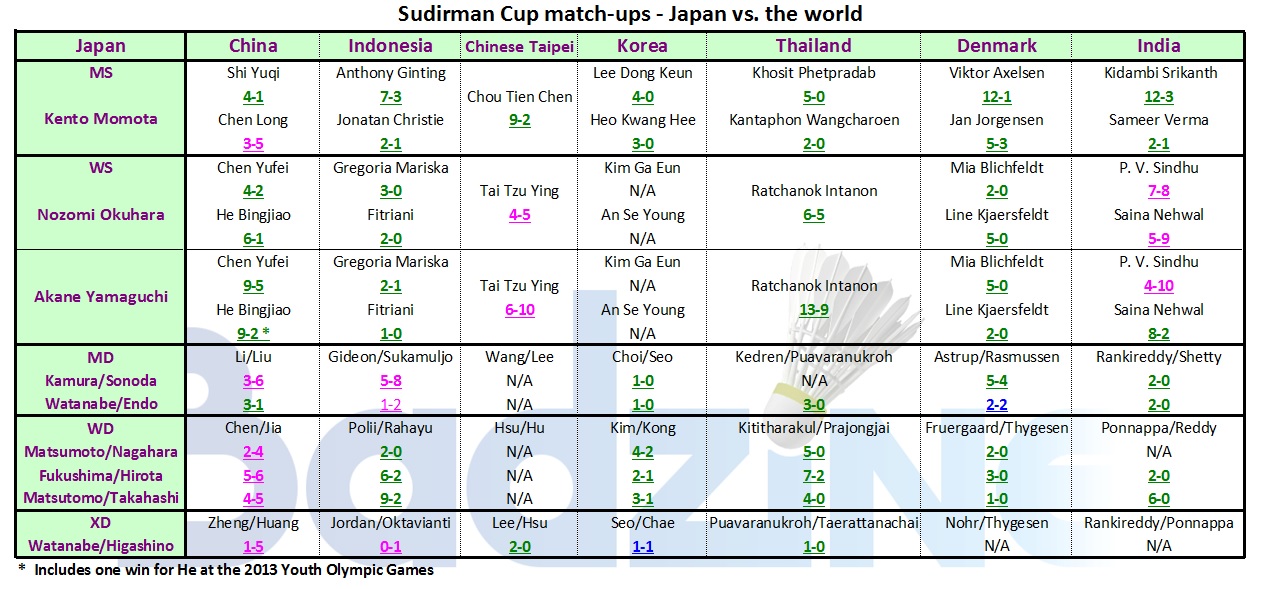
How Japan stacks up against the other seeded teams. Click on the image to see a .pdf version with links to the individual head-to-head pages on tournamentsoftware.
A 1st or a 1st in 30?
The strongest contender apart from China and Japan has to be Indonesia. Japan may be in the running for a first ever title but the Indonesians are almost as hungry. The only win for the island nation whose citizen lent his name to the Sudirman Cup came in the augural edition in 1989.
Indonesia, of course, has the world #1 pair in men’s doubles and their erratic form of late ever worries the coaches, they have the reigning All England champions and two-time World Champions Ahsan/Setiawan as a reliable Plan B. In men’s singles, too, Jonatan Christie and Anthony Ginting (pictured) can beat anyone on a good day, as can Polii/Rahayu in women’s doubles.
Indonesia is in a rebuilding phase in mixed doubles after the retirements of Debby Susanto and Liliyana Natsir but Praveen Jordan and Melati Daeva Oktavianti won their only encounter with Japan’s Watanabe/Higashino and all told, the Indonesians are again a solid contender to finally win back the Cup.
The depth of the field
Of course, in the last edition, it would have been folly to consider only the top two seeds and the same may be true again. Korea, already well under-strength when they won the Cup in 2017, is hurting even more now. Son Wan Ho was not able to contribute to the final in Gold Coast but he did play a crucial role in getting Korea there and his prowess will be sorely missed this year, as will that of Sung Ji Hyun, who put Korea on the board in the 2017 final with a win over He Bingjiao. Also off the team for this year are most of Korea’s mighty women’s doubles squad. Lee So Hee is on the list but not in Nanning. Shin Seung Chan will be available for scratch pairings, as will Chang Ye Na, but in addition to having her partner left at home, Chang pulled out of a domestic tournament last week and her condition is also therefore doubtful.
Korea’s only intact women’s doubles pair will be Kong Hee Yong and Kim So Yeong but even if they can be counted on for a point, Korea’s ability to get anywhere in the knockout round will again likely hinge on whether their male doubles players, including 2017 heroes Choi Sol Gyu and Seo Seung Jae (pictured) can pull off more upsets.
Korea is again in a group with a very dangerous Chinese Taipei team. Chinese Taipei is the favourite to take the group, especially with Korea’s injury woes. Whether they can advance past some of the other strong teams in the knockout round will depend on whether their singles aces Tai Tzu Ying and Chou Tien Chen can be backed up by at least one doubles win. This, in turn, relates to the form of Wang Chi Lin, whose new partnership with Lee Yang (pictured) or a scratch pairing in mixed may be able to sneak up on some top pairs, much as Choi Sol Gyu or Satwiksairaj Rankireddy seemed to in 2017.
Like Chinese Taipei, India has players in both singles disciplines who have extensive experience beating the rest of the best in the world. For India to produce a miracle, though, that has to be accompanied by a win in at least one of the doubles matches. In Gold Coast, Rankireddy and Ashwini Ponnappa were impressive with one upset and two near-upsets. Whether they can do more than come close in 2019 is somewhat in doubt as Rankireddy has been unable to compete much so far this year.
Thailand has Ratchanok Intanon ready to take down anyone in women’s singles but their lack of consistency in other disciplines relegates them to dark horse status. Dechapol Puavaranukroh / Sapsiree Taerattanachai finally found the winning formula against world #1 Zheng/Huang and Taerattanachai and Jongkolphan Kititharakul had some impressive results as a scratch pairing two years ago. However, to beat the top teams, they need to have everything clicking all at once.
The European challenge
The Sudirman Cup remains the only Cup that has never been won by a non-Asian team. Once again, Denmark is the strongest challenger from that end of the Eurasian landmass. As the world #3, Viktor Axelsen should have an edge over the majority of players he might come up against but should Denmark have to play Japan, he may again be in dire straits. Axelsen does have the clear advantage over Shi Yuqi but a China-Denmark match-up could also see Chen Long get the nod, as the Rio gold medallist has had his share of success in the past year over his successor as World Champion.
Ever since Tine Baun, Pi Hongyan, and Julianne Schenk retired, it has been a given that European teams would have to give up on points in women’s singles against the top Asian teams but Denmark might still harbour some hope of an upset, given that Mia Blichfeldt (pictured) produced an upset over Chen Yufei at last year’s Uber Cup.
For the Danes, singles success is even more important than it has been in years, as the retirement of Christinna Pedersen has left the European Mixed Team Champions depending on world #43 Nohr/Thygesen or on a scratch pairing involving former top ten shuttler Mathias Christiansen. They will have more confidence in China Open champions Astrup/Rasmussen to contribute a point when it counts in men’s doubles.
Technicalities before the knockout
Of the 8 teams favoured to proceed to the knockout round, the most vulnerable are likely India and Korea. Korea has only the 17-year-old An Se Young and the slightly older Kim Ga Eun, who has no international team experience. That means that they will be lucky to get any singles points against Hong Kong, a team that is certainly capable of fielding an upset-ready mixed pair against Seo Seung Jae and Chae Yoo Jung, who have not competed together since the All England.
India has the definite edge over Malaysia in singles but even without their two Rio silver medallists, Malaysia is still favoured in all three doubles disciplines. If Satwiksairaj Rankireddy or Ashwini Ponnappa (pictured) are in form either together or separately, however, then India could pose a danger not only to Malaysia but to just about any team in the tournament.
Group play gets started at 11AM Sunday morning. The first tie in Group 1 will see Indonesia take on England, while the top seeds in both Group 1 and 2, Netherlands and Ireland respectively, will take to the adjoining courts. The highlight of Sunday’s evening session will be the home team taking on Malaysia.
Click here for the Sudirman Cup draws, rosters, and results
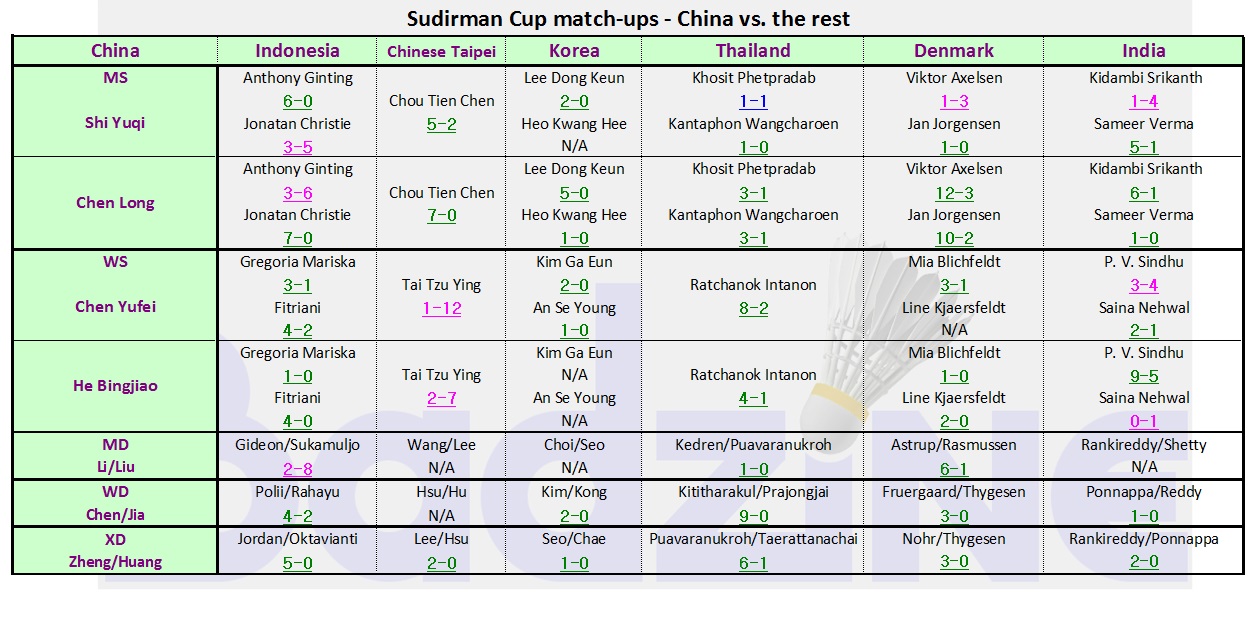
How China stacks up against the rest of the seeded teams. Click on the image to see a .pdf version with links to the individual head-to-head pages on tournamentsoftware.
![SUDIRMAN CUP 2019 Preview – Can Japan complete its collection? Only China and Indonesia have a complete collection of world badminton team championship cups but as favourites at this year’s Sudirman Cup, can Japan finally join this most exclusive of […]](http://www.badzine.net/wp-content/uploads/ngg_featured/20150517_1755_SudirmanCup2015_RS_L3791a_rotator.jpg)
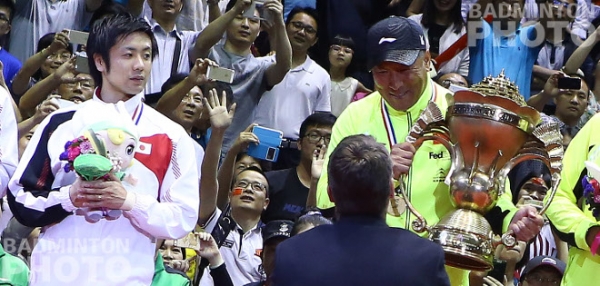
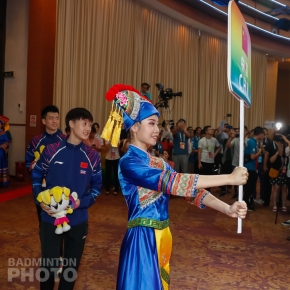
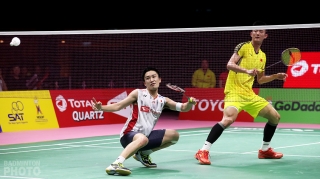
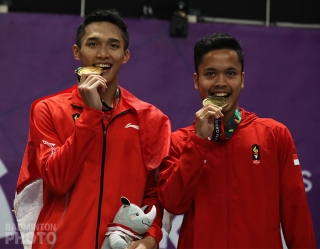
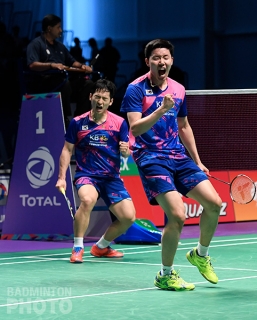
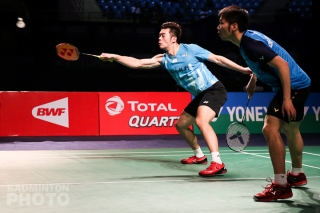
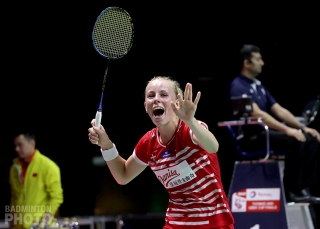
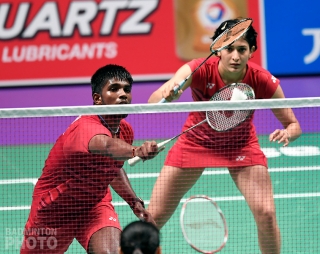

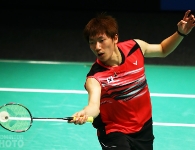
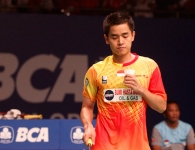
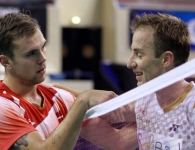
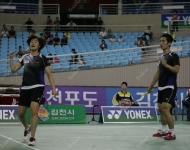
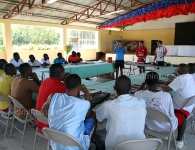

Leave a Reply